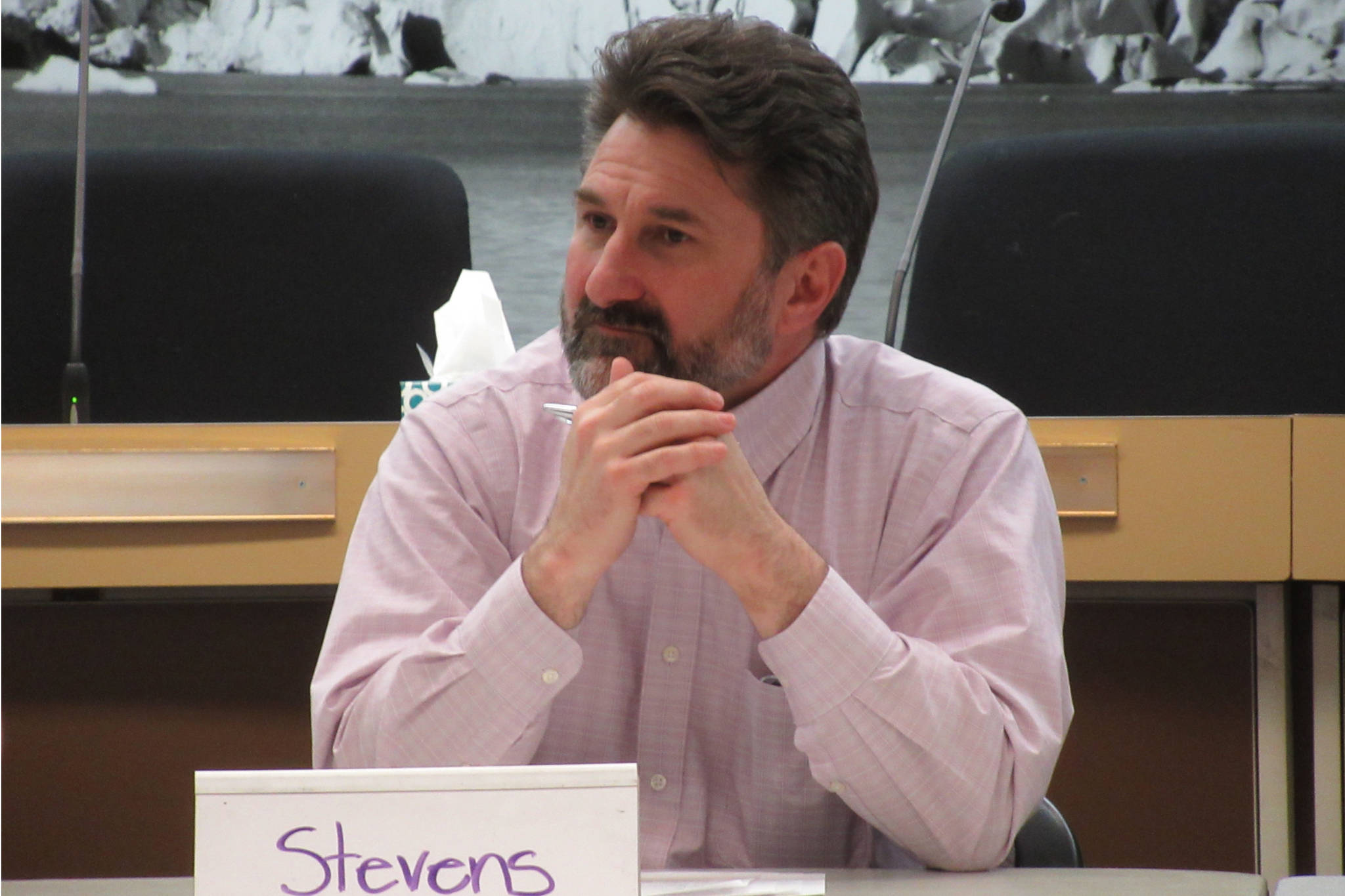Uncertainty regarding Gov. Mike Dunleavy’s proposed budget extends to Bartlett Regional Hospital, said hospital board of directors members Tuesday.
During a joint meeting between the hospital board and the the City and Borough of Juneau Assembly, Lance Stevens, hospital board president, said proposed cuts could mean more than a $7 million loss in Medicaid revenue for the hospital, but how the hospital would respond to that scenario is being worked out.
“If Medicaid is reduced 33-38 percent, based on our current Medicaid income, that would be about a $6 to $7.6 million revenue shortfall,” Stevens said. “So the devil with that is in the details. Once you know the details, you can better figure out what the overall impact line by line would be. The details right now are a large cut without a lot of supporting documentation.”
[Proposed Medicaid cuts spark outrage]
After the meeting, Stevens said the hospital sees revenue of about $100 million, and Medicaid accounts for about 20 percent of that — $6 million would be 6 percent of that total revenue figure and about 30 percent of the Medicaid revenue figure.
“You’re a board with a tough job, and you do it well,” said Juneau Mayor Beth Weldon.
Assembly member Loren Jones asked if the proposed cut will literally work out to be $6 million in lost revenue. He said people no longer receiving Medicaid support are likely still in Juneau, will likely still need medical services and may still seek some level of treatment, which may make the impact on revenue smaller.
“Is it really going to be $6 million, or is it going to be $4 million or $3 million, or do you know?” Jones said.
Hospital board members said that’s unknown at this point.
Bartlett Regional Hospital CEO Chuck Bill said that’s in part because Medicaid expansion has changed expectations where health care is concerned.
“What will that impact be on us, there’s too many unknowns,” Bill said. “I do think behavior has changed, and it will change what they expect from the community for health care, and what will our role be and what will our impact be, we don’t know.”
[State proposes $225 million reduction in Medicaid spending]
Plus, there would be indirect impacts from the proposed budget.
Budget cuts that could reduce the number of state employees would mean a reduction to an insured population in Juneau, which could have a negative impact on the hospital financially.
Bill said the hospital currently gets 64 percent of its payments from government sources such as Medicare and Medicaid and 34 percent from commercial sources such as insurance companies and about 2 percent from self-pay.
“The difference there is we get about 98 cents on the dollar from commercial and we get an average of right at 50 percent from the government,” Bill said.
As recently as 10 years ago, Bill said commercial payments were more common than governmental ones.
“That really challenges the ability to grow, expand, provide additional services and provide some services we did 10 years ago,” Stevens said. “The streams aren’t the same.”
Not just budget talk
Possible changes to the sleep-off program were discussed during the joint meeting.
The program picks up inebriated people and allows them to stay in a safe place for the night and is currently operated by the hospital.
Stevens said while the program is a necessary community service, it is only utilized by an average of one person per day and it costs $800,000 to operate annually.
That has prompted discussion of whether it’s something that could be handled by a different entity.
Possibilities of the program being taken over by Capital City Fire/Rescue or St. Vincent de Paul were mentioned, but City Manager Rorie Watt said talks are far from final.
“It is by no means a done deal, but there appears to be an opportunity,” Watt said.
Additionally, Stevens outlined some projects in the hospital’s future.
Those include improved crisis intervention facilities that would allow for the treatment of youths without sending them out of Juneau, an exhaust system to allow pharmacy workers to mix chemotherapy drugs and both maintenance and expansion projects.
• Contact reporter Ben Hohenstatt at (907)523-2243 or bhohenstatt@juneauempire.com. Follow him on Twitter at @BenHohenstatt.

